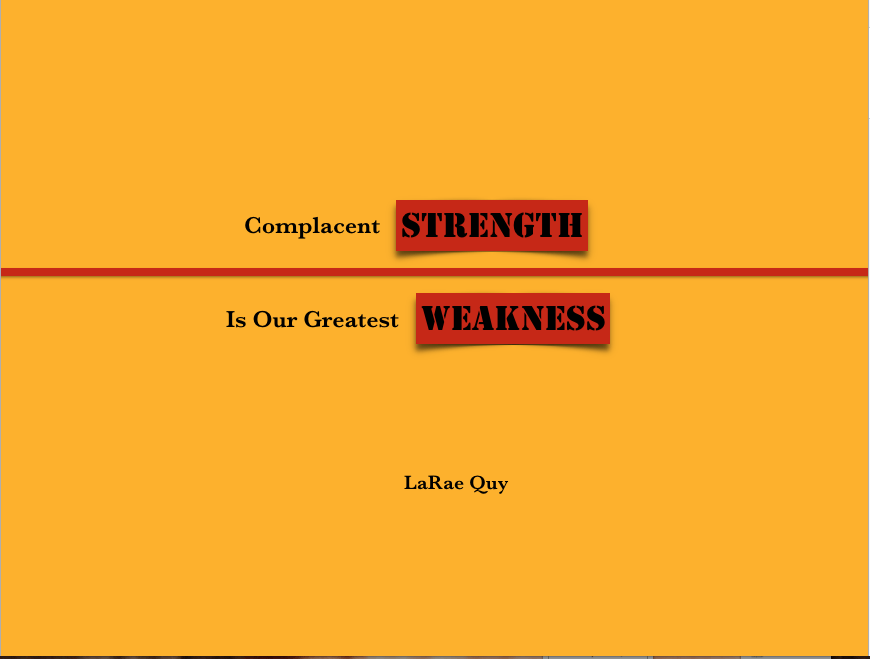People are obsessed with the idea of success because it’s often the most visible indicator that they’re the best in the world at what they do in life.
Our idea of success may be measured by money, sex, or power. For others, it may mean having a positive impact on the world. While everyone’s definition of success may be different, we all agree that it takes hard work to get there. Once we succeed, it takes even harder work to stay there.
It’s tempting to buy guides, programs, and books on how to become the best at what we do, but it’s only the writers of these products who come out ahead. The reason is that you are the only one who can truly define what success means to you. Even more important, you are also the only one who knows just how hard you’ll work to become the best at what you do.
Success isn’t a goal or a possession. Instead, it’s a mindset, a way of thinking about yourself and the adversities you will face in life. It takes mental toughness to believe you will prevail in your circumstances rather than believe your circumstances will somehow magically change.
Are you mentally tough? Take this FREE assessment.
Rewire how you think about success and it will help you become the best in the world at what you do:
1. Define Who You Are

If you don’t know the kind of person you want to become, you’ll be like a boat in a storm and tossed in the direction of the strongest wind. Never mind it doesn’t take you in the direction you really want to go because, hey, you don’t know where you’re headed anyway.
If your success doesn’t help you become the kind of person you want to become, it’s all pointless, isn’t it? Because here’s the thing—success doesn’t always bring satisfaction or happiness.
In fact, true success never happens unless it also provides value and meaning. Too often, people try to find value in their work long after they’ve achieved success.
Complacent strength is our greatest weakness. We’re afraid to move from the place we found success. We become complacent and would rather remain in a comfortable rut than find ways to become the person we want to be.
How To Make It Work For You: It’s never too late to assess your values. Don’t lower your standard and ask yourself, “What gives me pleasure?” Instead, ask yourself, “How can I be a better person?” The answer to this question will help you make priorities in your life.
2. Create A Strong Corporate Culture That Reflects Your Values
According to research by Deloitte, 94% of executives and 88% of employees believe corporate culture is important to the success of a business. Deloitte’s survey also shows a strong correlation between employees who claim to feel happy and valued at work and those who say their company has a strong and positive impact in the marketplace.
Organizations that have strong, positive corporate cultures help employees feel and perform at their best. Perhaps one of the best examples of a clear mission statement that conveys the value of the organization is Chick-fil-A, now the third-largest chain in the U.S. Chick-fil-A took the Christian principles of its founder, Truett Cathy, and used them to establish a fast-food chain that’s more efficient, more polite, and perhaps more beloved than any other.
“There is a fundamental question we all have to face. How are we to live our lives; by what principles and moral values will we be guided and inspired?”—H. Jackson Brown Jr.
How To Make It Work For You: Once you define who you are, apply those same values to your company. When an entrepreneur has a “why” for their startup, it gives them a base from which they can make decisions, grow, and evolve. While it starts with the entrepreneur, it’s implemented through the clear message conveyed in the hiring and training process.
Give your employees a reason to work, contribute to something worthwhile, and make a difference. In return, you’ll earn their loyalty. In the process, you’ll earn the loyalty of customers who share similar values.
3. Change The Way You Think About Your Challenges

You must move out of your comfort zone and adapt to new circumstances if you want to become the best at what you do.
Stanford researcher Carol Dweck observed, “There is no relation between students’ abilities or intelligence and the development of mastery-oriented qualities. Some of the very brightest students avoid challenges, dislike effort, and wilt in the face of difficulty. And some of the less bright students are real go-getters, thriving on challenge, persisting intensely when things get difficult, and accomplishing more than you expected.”
In other words, it’s not always the people who start out the smartest who end up being the smartest. The ones who were not the smartest developed the mentally tough mindset that allowed them to manage their thoughts, emotions, and behavior in ways that set them up for success.
Successful leaders have a growth mindset—they believe their abilities can be developed. Too often people are held back by a fixed mindset where they believe that their abilities are fixed and innate. As a result, they’re much less likely to flourish.
How To Make It Work For You: To answer the question of whether you have a growth mindset, you must first ask yourself: How good do I want to be? In other words, you must be willing to put in the extra effort to improve your skillset. This quote from Jackie Joyner-Kersee illustrates the growth mindset: ‘I derive just as much happiness from the process as from the results. I don’t mind losing as long as I see improvement…If I lose, I just go back to the track and work some more‘.
4. Surround Yourself With People Smarter Than You
Yes, your ego may take a blow but always remember that you do not need to be the smartest person in the room to be the most successful one. When you surround yourself with smart people who have been given permission to challenge you, you signal that you’re not only confident but that you’re also open to new ideas.
Many leaders and entrepreneurs start companies and end up with “founderitis,” a situation where they can’t let go of their original vision for the startup—even when the market and other factors have changed. The initial creativity for the project limits continued growth and success because the founder maintains disproportionate power and control.
Smart people around you will recognize this situation and bring it to your attention. Surround yourself with team members who are inspired by your vision but aren’t afraid to voice their own opinions. It’s important to convey to them that you value constant learning. A growth mindset is willing to adapt as circumstances and technology change.
When you surround yourself with smart people, they will be alert for another common problem for entrepreneurs—a cool solution to a problem that doesn’t exist. Many times people want to start a company because they’ve discovered a great solution, but it might not be something that consumers care about. Again, if you’ve given the smart people around you permission to speak up and point out these issues, you’ll stay on a successful track.
“Wherever smart people work, doors are unlocked”—Steve Wozniak
How To Make It Work For You: Your ego will be the biggest hindrance so you will need to demonstrate that you’re confident but not territorial. Partner with people who 1) compliment you and will help you keep a healthy tension between confidence and humility, and 2) have a reputation as a top talent because talent attracts talent.
5. Cherish Your Critics

No one likes a personal attack and criticism is always hard, but there are two things to remember: First, there’s a big difference between negative feedback and constructive criticism; and second, try to not take it personally (even though this can be very hard).
Feedback is super important because everyone is a potential customer. Grit up because no one cares about your feelings. Always remember that if you can convince your critics, you can convince anyone!
Even though critics may compare you to today’s biggest loser in the market, pay attention to your competition because they might be tomorrow’s serious threat. Whether your critics point to a fault in your product, or something else, always pay attention to the fluctuations and changes in consumer tastes and technological advancements. Not paying attention to what others are saying doesn’t make you look cool; it makes you look incompetent.
“Criticism may not be agreeable, but it is necessary. It fulfills the same function as pain in the human body. It calls attention to an unhealthy state of things”—Winston Churchill.
How To Make It Work For You: It’s easy to go on the defensive when someone insults or criticizes a business practice or product, but take the time to filter through both the source of the information and the content. Is the person who delivered the message mean-spirited or someone you don’t like? Acknowledge how you feel about them as a person and then move on to their message. Is there a grain of truth in it? If there is doubt, grab your smart team members and disassemble the message to uncover the core. Is it something that would make your product more competitive in the marketplace? Is there an emerging trend that you hadn’t noticed before?
© 2019 LaRae Quy. All rights reserved.
Photo by Kyle Glenn on Unsplash
You can follow me on Twitter, Facebook, Instagram, AND LinkedIn
Are you mentally tough? Here is my FREE Mental Toughness Assessment
Check out my new online training program at www.SecretsOfAStrongMind.com
Get my new book, “Secrets of a Strong Mind (second edition): How To Build Inner Strength To Overcome Life’s Obstacles”

Author of “Mental Toughness for Women Leaders: 52 Tips To Recognize and Utilize Your Greatest Strengths”



I love this post LaRae! Success is such a tricky word and yes it is totally a mindset rather than a destination. I think leaders owe it to themselves to identify what they see themselves doing and work their hardest to achieve those dreams. And for sure that involves surrounding ourselves with the brightest and learning from from them with an open mind.
Thanks LaRae!
One of the things I love most about this is that it starts with knowing yourself, not what you do. We get caught up in doing and action isn’t the only component to success.
Big, huge, right on, LaRae!!
Alli
This is very nice and wounderfull post. I have got two points from this articale which is so effective to be exceptional leadet in organization.Firstly you have to that who I am. If you do not Idendified yourself no longer success will be there. So that this very significant point for building leadership. Secondly : in the bussiness corporate culture is important for performence of the organization and the most important thing is the leader should put his mindset with corporate mind.and culture.If it is not there the leader will carry the boat with strom in his whole life.
Thanks.
Very true. Success is to find meaning in what we do and to be the best we can be.